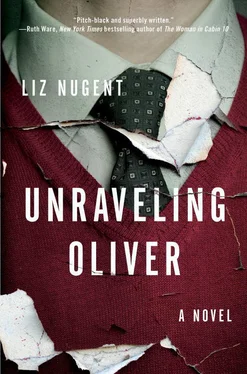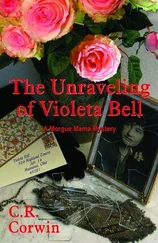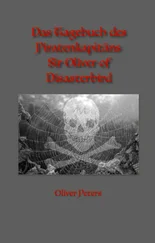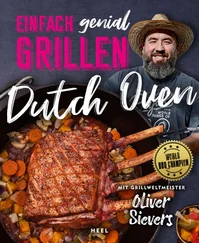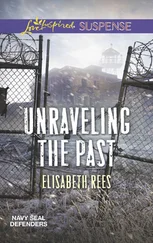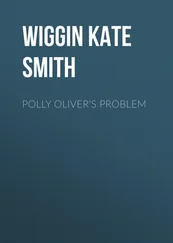Michael, oblivious to the fact that he was the cause of the accident, was quickly enlisted, as lunch was to be served for thirty people at twelve o’clock, while poor Ann Marie was taken off to the hospital. Luckily, Michael was clever, and as cooking is about demonstration and repetition, the language problem did not become an issue. However, I was astounded by how little he knew about food, how few ingredients he even recognized. Maybe it was true what they said about the Irish, that they ate only potatoes. Michael learned quickly, and, what is more, he enjoyed it and was flamboyantly enthusiastic about every aspect of the process. I could not be certain that there was not some other agenda though, and one or two times I caught him looking at me as if I were a kind of unknown ingredient that he was not sure whether to peel, boil, or plant.
One day, he flicked my hair out of my eyes rather clumsily, and it came to me suddenly that perhaps he had some kind of inclination to be a hairdresser, so I allowed him to play with my hair for a while. How stereotypical, I thought, a gay hairdresser. He was, quite obviously, gay.
His French was still quite halting, but when I precociously asked him about his sexuality, he had no problem understanding and crumbled instantly, weeping copiously. I realize now that this was his “coming out” and that my words opened a floodgate of guilt, repression, and confused identity. I ascertained that he was in lust with his friend Oliver, who was dating his sister Laura. Catastrophe . I assured him that I would tell nobody and arranged for him to meet with Maurice, our neighbor, who was openly gay and spoke some English. I hoped that Maurice would be able to counsel Michael, so I was quite cross with him when it soon became apparent that he had taken Michael to a gay nightclub. I thought that might be rushing things, but what business was it of mine? They were adults, after all.
So now I knew Oliver and Michael well enough. Laura was the person who connected them, and soon she made her presence felt in my life too. She was a lovely girl, perhaps a little spoiled, but she hated the fact that Oliver and Michael were in the house and that she only saw them in the evenings, while all day long she was left with the others in the orchards, so when she collapsed one day and was stretchered up to the house, I was suspicious, to put it mildly, thinking that this was a ploy to get into the house and attract some attention. But she was pale and sick. I was right to be suspicious, but not in the way that I thought. I took her to the doctor in the village, and with her consent, he told me that Laura was pregnant. I was initially annoyed. This was my first year taking migrant workers, and first there was the trouble with the Africans and now this. These employees were my responsibility, and clearly her thoughtless behavior meant trouble. There have always been ways to avoid pregnancy, and I am not talking about abstention. I tried to be calm when I spoke to her. She was very tearful and afraid that I would throw her off the estate. I was not sure what to do. She begged me not to tell Oliver, fearful that this would spell the end of their relationship, although it was apparent to me that the relationship was practically over anyway. He had fallen in love with my family instead. I did not know what advice to offer Laura, so I offered none. She was from a strict Irish Catholic family. Despite the family chapel on our estate, Papa had raised me without a faith and without a need for the guilt in which other Catholics seemed to like to indulge. The options that might have been open to a faithless Frenchwoman would have been unthinkable to an Irish teenager. Laura was only nineteen years old, but she had to make her own decisions. Her brother Michael was concerned. She lied to him, telling him that she had some gastric flu. I allowed her to stay in the château for a few days but then sent her back to the fields. I left it to her to make her choices. Just a few weeks later, I no longer cared. Not just about Laura, but about anything.
• • •
During the war, Papa ordered one hundred gallons of paraffin for the lamps in the wine cellar so that the Jewish families who stayed there would not have to spend their waking hours in complete darkness. It was delivered at night by a friend in the Resistance who had good contacts in Paris. I know my father sold my mother’s jewelery to pay for it, as gold was the only reliable currency at the time. When the house was raided in 1944, the Germans at first thought it was petrol and tried to fuel their trucks with it, but of all that they had destroyed in the house, the only thing they left behind were the cans of paraffin, discarded in a lean-to shed adjacent to the library in the east wing of the château. Papa’s bedroom was directly above the library. By 1973, the entire building had long since been wired for electricity. It had crossed my mind at some time to dispose of the oil, but my father, who had lived through two wars and was more conscious of rationing than me, insisted that we hang on to the oil, in case of another war or a simple breakdown of electricity, which he still did not entirely trust. It was a particularly dry and dusty summer. On the ninth of September 1973, it had not rained for eighty-four days and temperatures were well above average for the time of year.
Jean-Luc alternated between sleeping in my room or his papi’s. His own bedroom was rarely used. Both Papa and I had a small cot bed perpendicular to our own at the foot of our beds. It was very common at the time in French homes. If Papa was telling Jean-Luc a particularly good bedtime story, Jean-Luc could not be persuaded to return to my room. Sometimes the stories were a little bit scary and the walk from Papa’s room in the eastern side of the house to mine in the west wing was too much of a challenge for him. Papa would read until Jean-Luc nodded off, and then, as it seemed a little cruel to move him as he slept, we would let him spend the night there.
I do not know what started the fire. My father’s pipe, a cigarette, a stray ember from the charcoal oven, we will never know. My memory of the night is quite unclear; I was woken by a noise like a strong wind rushing through the hallways, and then the sound of shouting. I thought I must be dreaming. Even when I got out of bed and looked out the window and saw the east wing in flames, it was so unreal and absolutely unexpected that I still did not comprehend how much of an emergency it was. I wandered through the smoke-filled hall in my nightdress before I fully understood the horror before me. When I was shocked out of sleep, I was disorientated and lost my sense of direction, but as I ran along the gallery toward what I thought was the east wing, the searing heat and smoke drove me back. I began to shout for my beloved father and son, but the only response I heard was a hiss and a crackle and the splintering and spitting of wood. I became hysterical and batted my way into the flames to get across the gallery to the eastern side of the house, but the floor beneath me was smoldering and I could smell my singed hair. When I realized I was at the top of the burning staircase, I knew I could go no farther. I do not know how I burned my hands so badly. At the time, I did not even feel the pain. I do not recall how I got from the upper gallery to the courtyard, but I remember being restrained there by Michael as I kicked and bit him, trying to get away from him to rescue the only people in the world that I loved.
I did not know it then, but I later came to understand that Jean-Luc and his papi died of smoke inhalation, probably in their sleep. It is something of a comfort to me, as I spent months afterward in the nightmare of imagination wondering if they had to watch each other burn to death, screaming for my help, after desperately trying to save each other.
Читать дальше
